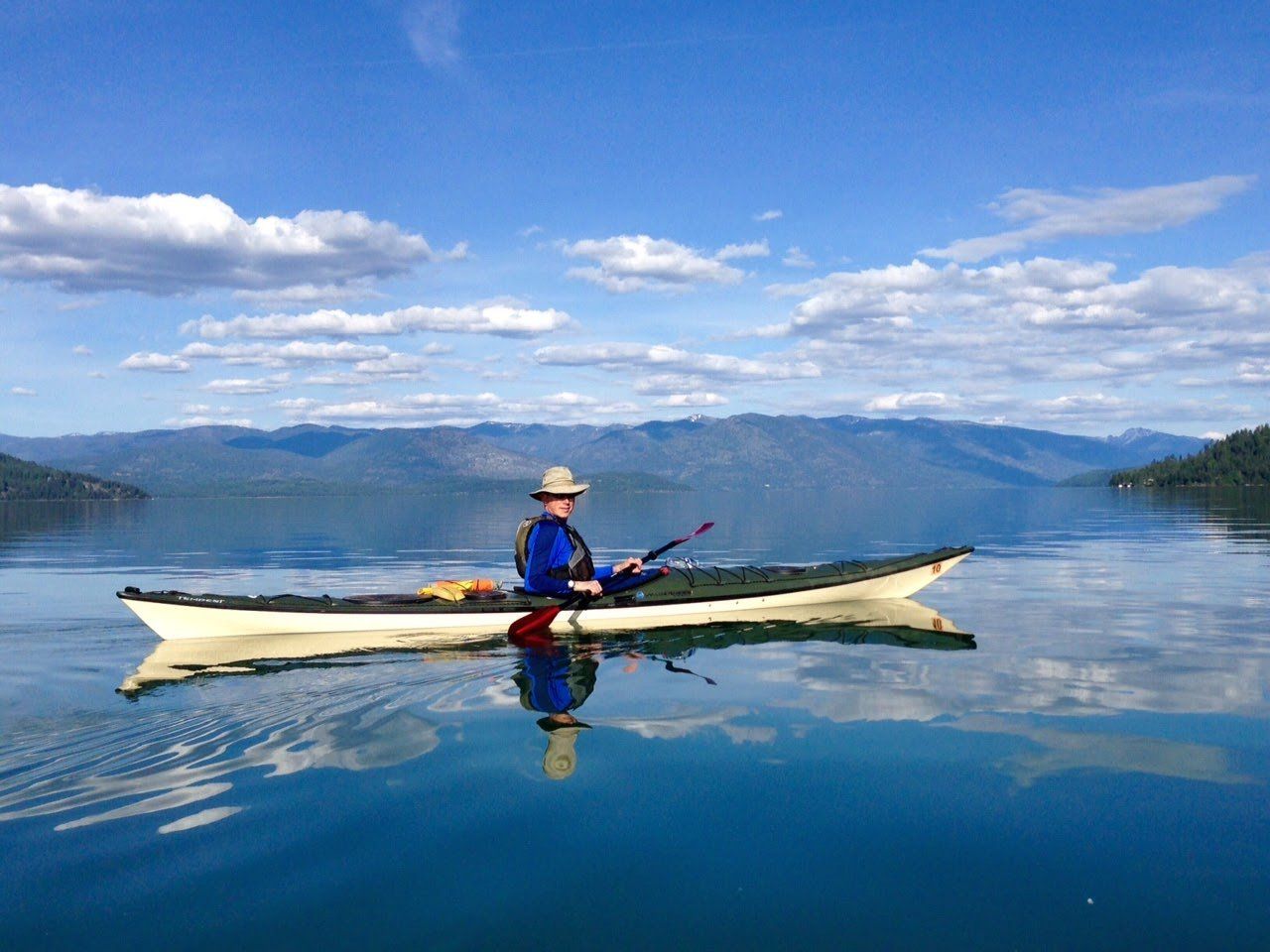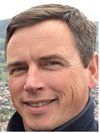Heart of Gold
Jun 20
/
Andy Kennaly

One summer in Wisconsin, I worked for an outfitter that offered sea kayak trips on the south shore of Lake Superior around the beautiful Apostle Islands National Lakeshore. Lake Superior has many moods, so guides were trained.
After local workshops, a special event took place. Mr. Derek Hutchinson of the British Canoe Union came from England to teach and test us on Basic Proficiency, which involved a very rigorous exam that needed more than paddling techniques to pass.
Late-May in the North Country was cold and drizzly. We gathered off the resort-town shores of Bayfield, in choppy waters that had only recently shed winter ice. My tank-top wetsuit wasn’t thick and didn’t cover everything, so for test day I added extra layers of long johns, wool socks, warm shirts, and an old sweater covered by a paddling jacket.
Mr. Hutchinson liked to remind us through his English accent that “Sea kayaking is a dry sport! It’s not meant for immersion!” But for me, on that day; I lost count of how many times I tipped over.
I had rolled a kayak in a swimming pool, for practice. On calm evenings out from the shop, it was no problem to work on this technique in the bay. I would right the boat every time. But my “combat roll,” when one tips on accident in wild conditions and then recovers, never materialized. I almost got it! But instead, I’d go back upside down, in the cold, dark waters of North America’s largest lake, then squirm out of the boat and swim.
My companions were patient, maneuvered the T-rescue and drained my boat. They’d stabilize it among relentless waves as I re-entered the cockpit. I got to return the favor as others also tipped in the rough conditions, and some needed to go to the shore due to the cold. The rest of us worked through techniques and drills, and we pushed ourselves to the edge.
One final maneuver involved tipping over on purpose, then swimming to shore while holding your paddle in one hand and your boat in the other. I stepped onto shore thankful to have finished. But Mr. Hutchinson was kind to give me a clue that I’d made an error. I had righted my boat before swimming to shore. In a storm with wind gusts and large waves, this could be fatal.
He said, “You need to keep your boat capsized and drag it as you kick toward shore, otherwise the wind will snatch it right out of your hand and you’ll never catch it.” Then he added, “I’m feeling generous, so you have a choice. You may remain on shore and fail the exam, or get back into the water for another attempt.”
Back into the lake! I paddled out, rolled over, immersed, and swam with my equipment in the requisite way. A mix of exhaustion, humility, and exhilaration helped me kick to shore and take those final steps as I dripped on the sand. I’m sure I was smiling.
A bit later we gathered in the store. Dry clothes, hot tea, and the group-processing helped us unpack the experience. We explored what it was like for us individually and as a team.
It was a rare honor to have Derek Hutchinson coach the stringent British Canoe Union’s Basic Proficiency exam. He shared words of inspiration, and through a hint of a smile, he handed me a certificate, saying, “You passed by the skin of your teeth, but you have a heart of gold.”
That gray day in May was a character-building experience. I gained appreciation for help from friends, and coaches who gave of themselves to impart skills. The day became what I call “a marker” that keeps other days in perspective. On cold days, I say, “I’ve been colder.” On wet days, “I’ve been wetter.” On days I’m tired, “I’ve been more exhausted than this and somehow kept going.”
What was it he saw in me that day? What is at the core of a heart of gold? More than willpower, more than luck.
In the Great Lakes, I found a place among ancient waters, linked with glacial past and the ongoing flow of Earth’s continued participation in the creative unfolding of God. Even when things didn’t go well and I tipped over, in the dark waters I sensed pervasive goodness. I was supported by more than the buoyancy of a Personal Floatation Device. Sustaining love and depths of grace were present. My inner reservoir was filled through active engagement with life.
It’s been decades since, and now I’m in North Idaho. Once in a while, I paddle Lake Pend Oreille, a deep water remnant of the same ice age that formed the Great Lakes. The sensation of floating on water suspended in a benevolent universe helps me take my place in Deep Time. I listen to the paddle slip into water and become aware of Presence. The living entity of Silence hovered over the waters of creation and is always there to show the Essence of everything.
Faith trusts this gift; that at our center, our soul, is God, where Christ gives peace beyond understanding in a qualitative way. As we experience turbulent times as a new epoch emerges, the unfolding of Perennial Wisdom in Deep Time integrates divine Presence and Love with hearts of gold.

Andy Kennaly
Andy is an author, pastor, spiritual director, and a bee keeper who lives and enjoys the Pacific Northwest in Sandpoint, Idaho. As a writer and pastor he explores mysteries, graces, and many facets of Christ’s Incarnation. To express experiential faith of the mystical tradition, he shares sermons, poetry, and story through the eyes of contemplative faith and spirituality, bee keeping, and gardening based on Permaculture principles. He and his wife, Shawna, have three grown sons. Honey Frame Place is the name of their home property. Andy currently serves First Presbyterian Church of Sandpoint as part-time Pastor. Past sermons can be seen at www.fpcsandpoint.org.
Honey Frame Place: http://www.honeyframeplace.com.
Honey Frame Place: http://www.honeyframeplace.com.

